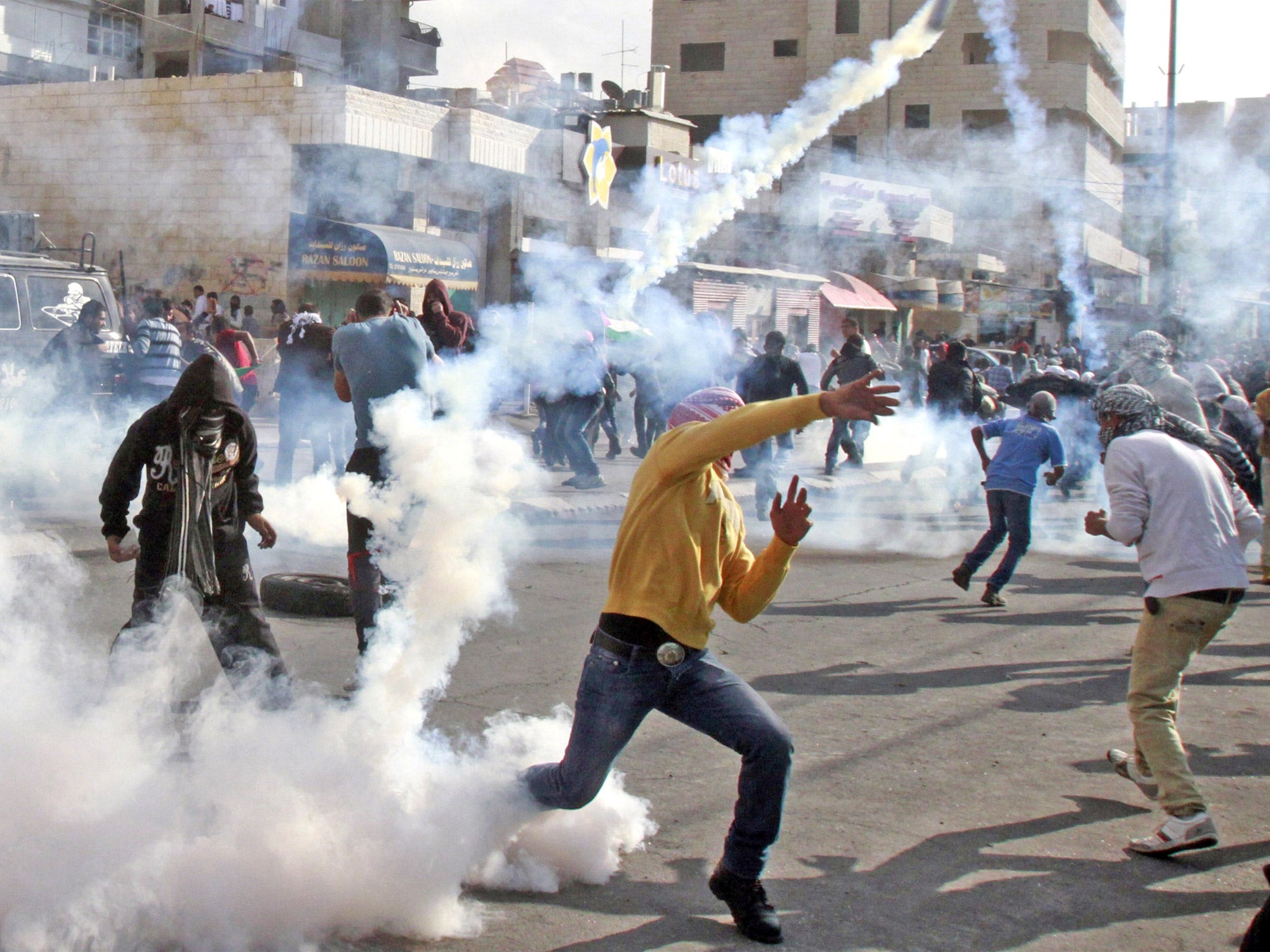Israel, Palestine and the growing importance of PR in this tortuous conflict
Winning public support has long been crucial in war - but it's especially relevant here

Every Thursday through Twitter the Israeli Defence Forces publish a tweet detailing their involvement, on that particular day, in goods transfers to the Gaza Strip.
Today's ran as follows: "@IDFSpokesperson: Yesterday we facilitated the transfer 324 trucks with 8,985 tons of goods and gas into Gaza, including 270 tons of fruit."
It's a bizarre feature of a conflict that has become almost as much about PR as pitched warfare.
Take last week's comments from British Foreign Secretary William Hague. After the Israeli government announced 3,000 new settlements near East Jerusalem, Hague expressed concern with the damage plans would do to Israel’s image, saying that more settlements "would undermine Israel’s international reputation and create doubts over its commitment to achieving peace with the Palestinians".
Moral high ground
These days, Israel and Palestine go to war sporadically but fight continuously over the moral high ground - one of the most important weapons in a government’s arsenal. With it, you are more likely to win the support of the international community, the body of the UN which has the power to condemn you, or to vindicate you in the muddy waters of modern warfare.
The recent conflict bore all the hallmarks of PR spinning. Elliot Abrams, Senior fellow with the Council on Foreign Relations, even theorized that Hamas instigated the conflict for PR purposes.
Positive reaction to Hamas’ role in the conflict was widespread amongst Gazan Palestinians, even more so after Netanyahu decided against a ground invasion despite general Israeli opinion in favour of sending troops into the Strip.
Following the ceasefire, Hamas encouraged widespread celebration, slating the negotiations as a "victory" - even though the short conflict came at the cost of their top military commander Ahmad al-Jabari, as well as substantial damage to their infrastructure, including the destruction of the Gaza Interior Ministry. While the claim to have won is of course debatable, the surge in popularity Hamas enjoyed following the clashes is not.
Israel
PR is indulged in equally across the border. Quoted in Vanity Fair, Gonen Ginat of Israel Hayom, spoke of “Netanyahu’s conviction that many problems, both his and Israel’s, are really matters of hasbara: Hebrew for public relations.”
Israel has been accused of employing spin by those who see disparity between the repeated mantras of the need to defend with the fact that the state possesses the fourth finest army and defence capabilities in the world – and is widely acknowledged to possess nuclear weapons. Added to this are the destructive military campaigns of the IDF, which are often dubbed with deceptively benign names such as 2006's "Operation Summer Rain" - where tanks blitzed through the streets and warplanes bombed infrastructure, causing failure of the sewage system and power plants.
Critics have argued that Netanyahu’s bellicose rhetoric and the Israeli culture of fear which it propagates does nothing to combat its relations with those governments it lies in conflict with.
Jewish writer Seth Freedman has remarked that the Israeli obsession with its own security is causing national paranoia of a fear that makes integration with their neighbours more or less impossible. By continuing to provoke and restrict Palestinians and their rights, they create what they fear. Another generation ‘branded Amalekites’, another reason for Israelis to circle the wagons, batten down the hatches and convince themselves that it is simply their lot to be, in his words, eternally ‘hated and reviled’.
This is not to suggest that either Palestinians or Israelis are unable to see beyond the spin of their respective leaders, it is something to be considered as yet another prolonging factor to the actual conflict at hand. Only when the governments in this region relinquish their obsession with public opinion will they ever put a stop to this never-ending destructive cycle, and continue with what they must do – return to dialogue, and negotiation.
Join our commenting forum
Join thought-provoking conversations, follow other Independent readers and see their replies
Comments